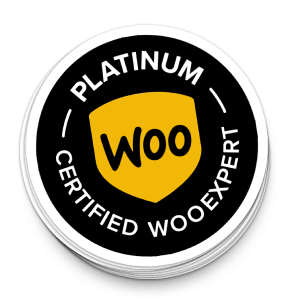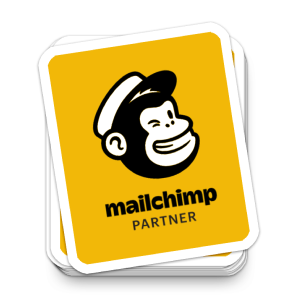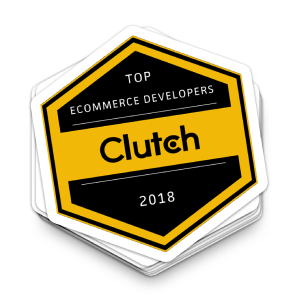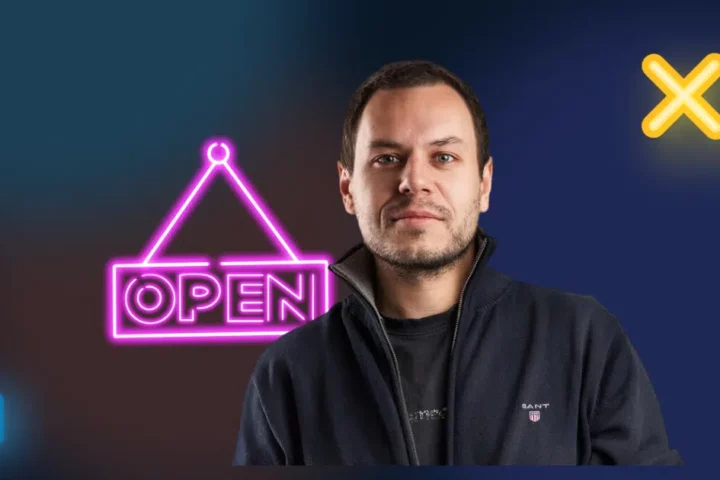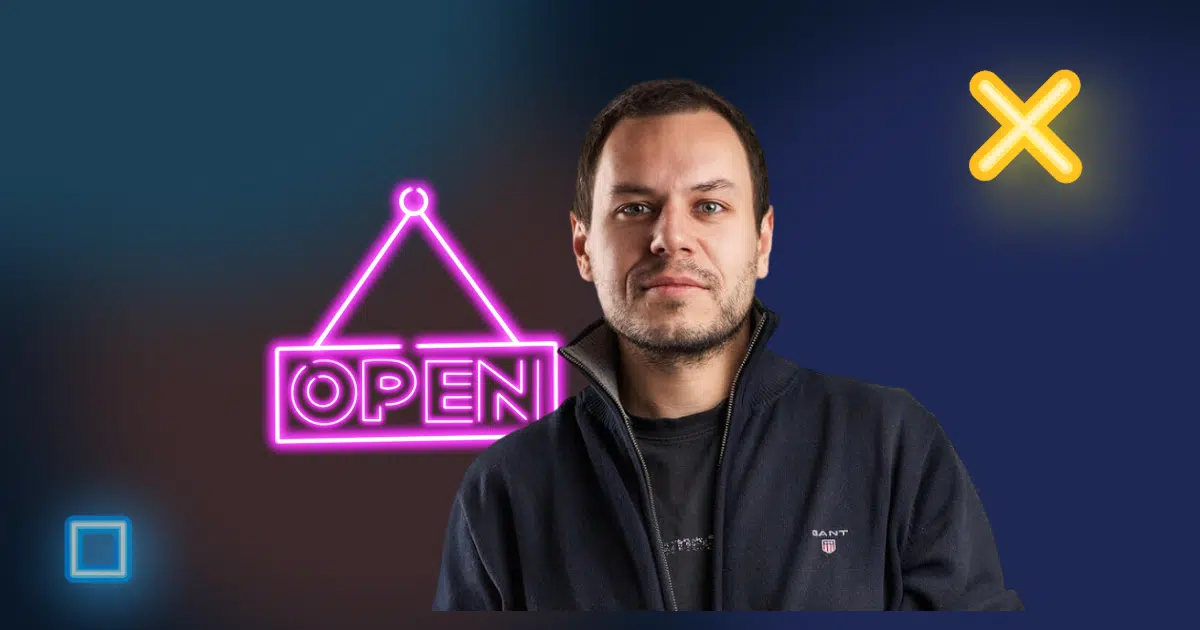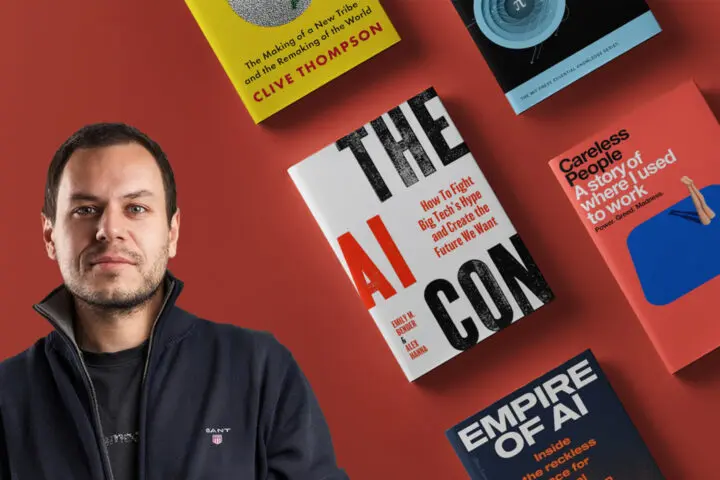The benefits of using WordPress and the challenges that come with it – Raw ShiftMag interview material
Folks from ShiftMag did an interview with me couple of days ago. I felt the need to share my full unedited & unredacted responses to their questions as the topics were evergreens – Open Source software, managing community efforts and the role of the web on the overall markets.
1. Can you explain why you decided to make WordPress your go-to tool, and what advantages do you see in using such an open-source tool?
Agencies will give you the usual shtick that WordPress enables maximum customizations, data ownership and prevention of vendor-lock-in. While these arguments hold merit, they fall short in two key points.
First, telling project owners that WordPress (or any other open source software) is “free” is a massive misdirection and undersell. The real benefit of a system that doesn’t have a hefty perpetual licensing cost is that you can allocate all of the planned IT budget into one thing that really matters – polished and meaningful user experience.
High quality copywriting, custom user interfaces, content architecture, proper user flows and any custom frontend or backend code is currently under-budgeted and that is a big long-term problem for our industry. Open source projects give you an “architectural peace of mind” knowing that you can focus on the user-centric challenges and build what is right for them.
Second, open source code is battle-tested across a suite of servers, deployment processes, implementations, agencies, freelancers, enterprises, volunteers and *that* is something that proprietary software solutions can only dream of.
Take Gutenberg editor for example – it’s currently written, optimized and maintained by over 1060 developers or contributors. That’s a lot of quality assurance eyeballs and this is the true production power of open source. Clients and investors usually don’t care about this argument which is kind of ironic, given that they later always shout “hey, our new web admin is awesome, it just works”
2. Could you share how Neuralab has actively invested in and contributed to the WordPress community and how this has impacted your projects and reputation?
We started to use WordPress around 2010. when WP’s market share was ten times smaller. In the absence of major conferences or meetups, the community’s primary drive was towards constructing essential pipelines.
Moreover, I think the most meaningful community effort during this “infancy time” is that we tirelessly pushed WordPress through various doors. This moment is often forgettable and overlooked now, but agencies, product builders and freelancers – that educated clients about open source solutions – are one of the most prominent reasons for current WP ecosystem strength. Because, without mass adoption on both enterprise and SMB playgrounds, you cannot have meaningful contributors. And we know that projects without active contributors are instantly shelved.
Later on, our team ventured into organizing conferences, meetups (WordCamp Croatia @ MSU 2017, series of WooCommerce and WordPress meetups @ Carnet or Gacka Hub) and giving lectures on the topics of the overall web development.
Nowadays, we are focused on constructing various building blocks for the modern web – building buy now / pay later systems with ERSTE Keks pay or Viabill; integrating Ethereum Web3 building blocks (like non-fungible or fungible tokens) for eCommerce payments and content access; or integrating AWS Polly (text-to-speech) as to bolster accessibility in WooCommerce products.
3. Winning the Open Source Champion award from Automattic is a significant achievement. What specific initiatives or activities do you believe played a crucial role in earning this recognition, and how do you view the importance of community engagement in open source?
There’s an old joke that “tech folks should visit a therapist instead of starting a podcast” 🙂 Naturally, Neuralab’s in this group as Nominis (eCommerce podcast) is our prime community building effort. We’re producing the show in cooperation with the eCommerce association and the two power hosts – Saša Tenodi and Marcel Majsan. Nominis crew recently shot our 67th episode and you should definitely hear some of the recorded hot takes.
Second community pillar is that our Bruno Zagroščak is leading a local WooCommerce meetup with more than 400 community members. This is a more technical / engineering knowledge sharing space and our plan is to make fewer meetups, but make them heftier in attendance and content. In essence, we will pivot from smallish quick quarterly meetups to bi-yearly larger gatherings.
Last but not least, we’re constantly writing essays and columns across media outlets where we talk about issues surrounding our industry. We don’t shy away from problems so we do try to double down on self-criticism and present how the overall web community should address civic issues. To be honest, this has piled into a small library of issues so … I’m currently writing a book titled “Coding is the Easier Part” that will land on a similar tone.
4. WordPress has evolved over the years. What are your insights on the future of WordPress as a content management system and its role in the broader tech Ecosystem?
WordPress has evolved into a full fledged web building platform – but it is a big understatement to say that WP is “just a tool”. Our community has a tremendous impact on how the web industry is flowing and evolving. Yes, content management system (CMS) market share of 65% and overall web market share of around 42% is truly impressive, but there are more underlying moments happening here…
First, we can safely say that WordPress democratized publishing and that every individual or enterprise can basically become a media outlet. WP will additionally “democratize creation” once Generative AI models integrate into the existing content publishing workflows.
Second, the WP community educated the whole market on what it means to truly own and control your stack (data) and was one of the first ecosystems to integrate privacy controls into the native admin experience. I could also talk at length about what WordPress brought to the tech table, but let’s highlight only a couple of items.
Matt Mullenweg famously touted in 2015. that JavaScript is the future of web and WordPress. He was spot on as we’re now observing that JS is running under the hood of most modern applications and tools. This opened the world for React, Angular, Vue etc. and overall headless web projects. And while one could spend endless hours weighing the pros and cons of “headless”, WordPress did have an impact on adding these types of architectures into the web industry.
Additionally, block editing of content and overall accessibility efforts (A11Y) were highly urged by the WP community. Gutenberg block editor can now be used inside Drupal projects – which is a prime example of how tech can enable cross-ecosystem cooperation while, at the same time, bolster civic and ethical considerations. On the future note, I’m truly excited about real time collaborative editing that is coming to Gutenberg (something like Google Docs functionality) and a revamp of the entire WordPress admin – which is long overdue.
There’s a “but” of course. The problem with large systems like WordPress is that once they get big enough, they need to become stable, robust and backward compatible. Every engineer knows that this means less experimentation, which consequently hinders developers, especially the ones that want to work only on the latest hype. This is the biggest pain that either PHP or WP endures and it’s one of the reasons why we as a community need to work on educating both ourselves and the market, that “boring is actually cool” and that innovation needs to be meaningful – and not conducted just for the sake of blindly innovating.
5. As a tech agency using open-source tools extensively, what do you believe is the biggest challenge or problem facing the open-source community today, and how can it be Addressed?
The biggest challenge with any open source project is “who will pay for all the pipelines”? Meaning, where will we get the money, resources, eyeballs and effort into building the next version of any open source code.
Idealistically, the community should “give back”, but the next question is how and when? Matt Mullenweg was blasted with criticism when he addressed this issue and prompted all community efforts that they should give “five percent” of their energy back to the system. So for instance, if your team has hundred developers, five of them should constantly work on WP core issues.
The problem with this is that “toxic scorekeeping” – as some authors have called it – is neither realistic nor fair towards open source contributors of any kind. Take Neuralab for example. We don’t allocate developers to work on WordPress core, BUT we do allocate developers to work on various integrations and modules that give rise to the whole ecosystem. Our PM team is working tirelessly on meetups, working with clients and educating the market – so how do you measure the value of this?
All in all, the problem of budgeting for open source software is one the most pressing concerns for modern society – as you currently have a tremendously big IT system that will fall apart unless Jeremy from Ding Dong (Texas) pushes a bug fix on his popular open source JavaScript library.
There are two possible solutions that go hand in hand – society should start to think about open source projects as public goods. You take roads, trees and water for granted, but they are actually heavily managed, funded and taken care of by governments and NGOs. Same should apply for open source software to some extent.
Second, there’s an issue with budgeting and allocating resources and I’m closely watching what the Ethereum community is doing with quadratic funding and Gitcoin grants – this could be proven as a realistic budgeting tool for most future open source software endeavors.
6. The recent controversy around Terraform’s license change sparked a debate in the open-source community. How do you balance protecting intellectual property and maintaining the open-source spirit? What lessons can others learn from such incidents?
Creators of open source software such as HashiCorp have vast business options for placing their products on the market. Take Adobe, Automattic or RedHat for instance. They all have community-based products that are functionally similar to their enterprise offerings, but with different licenses – making a clear distinction between market segments and tooling costs.
And if you want to limit direct competitors and their commercial use cases (which was the basis for HashiCorp Terraform decision) you can also provide something that Meta did with its Llama 2 large language model – they generally open sourced it, but stated that special license from Meta is needed if the model is used in an application with more than 700 million monthly users.
Now, it seems to me that the Terraform issue was both a sloppy planning operation and a dishonest messaging case. Unity had the same issues, which they corrected based on the massive community outburst. Marc Whitten (Unity Create lead) wrote an apologetic letter towards the ecosystem and offered license distinctions that are more granulated and thought out. Unity crew even provided a calculator for estimating the tooling cost in association with your project success. Other OS projects could pick up this Unity story and learn from it – avoiding future licensing community fires.
7. The decision to rely on open-source tools can sometimes come with concerns about security and reliability. How does Neuralab address these concerns when using WordPress for client projects, and what best practices do you recommend?
The beauty of large open source projects is that there are tons of best practices and know-how guidelines. I’ve answered this already, but let’s recap – open source projects have huge numbers of various contributors across the globe and this is a lot of quality assurance eyeballs. In a nutshell, WordPress core has less Common Vulnerabilities and Exposures (CVE) than Windows, PDF format or Debian.
Usual recommendations apply – don’t bloat your project with unnecessary UX and functions, use a proven hosting partner and most importantly – take care of your application stack once it goes live with regular updates, backups and maintenance patches.
Naturally, reliability remains a pressing matter. All investors want to make their project as future-proof as possible, but here’s the thing – open source beats proprietary software at this game by a long shot. Think about it, the worst end game scenario of using open source software is that you need to fork it. The worst end game scenario of using proprietary software is that you’re deplatformed and need to do a complete project overhaul. And all that on someone else’s dictated timeline.
8. Can you provide examples of successful collaborations or partnerships within the open-source community that have benefited Neuralab and its clients?
I think Web3 communities have one of the greatest collaboration examples. Take the Ethereum ecosystem and their Layer 2 technologies such as “Optimism” and “Base”. Coinbase engineers have taken the Optimism “core” and published their own open sourced Layer 2 technology which we can then build upon – creating web3 interactions that benefit all merchants (with lower processing fees and faster transactions)
Second example is Gutenberg editor where Automattic led the development of this block editor, but the Drupal community also weighed in with contributions. Now, we have a powerful content editing system that is built to last and is known across the web space.
Local examples include our work with KEKS pay or WS Pay and also the work we did with HSM on Salesforce integrations, all of which are open source modules that can be fully utilized by merchants of all sizes. We even open sourced our contracts and estimates for all agencies to freely use which you can find on the same GitHub place.
9. In your journey with WordPress and open source, what advice would you give to other tech agencies looking to embrace open-source technologies and cultivate a strong community presence?
Neuralab wasted years on using questionable technologies (Flash, DotNetNuke, Joomla etc.) so my first advice is that founders and developers should deeply investigate all the pros & cons of one tech before integrating it into their production. Those decisions will heavily impact future projects so doing your homework before rushing to conclusions is a must. Angular VS React; Unity VS Unreal; Symphony VS Laravel are just a couple of the examples and looking at their OS communities is a sure sign that you’ll future proof your production.
Also, a boring (but true) advice is that all creators should share as much knowledge with the community as they can. Now, the troublesome part is doing that on a constant basis and on a level high enough to make some meaningful impact / connection. On that note, I think that people should share knowledge in topics and content forms in whichever they feel at home the most – somebody will write essays, some teams will organize meetups, devs from some other company will feel like contributing to the core code is their thing and some PMs will record Youtube videos. All this is helpful in building all sorts of open source communities.
You can read the full edited interview by Anastasija Uspenski @ ShiftMag here > https://shiftmag.dev/open-source-software-wordpress-community-1540/
